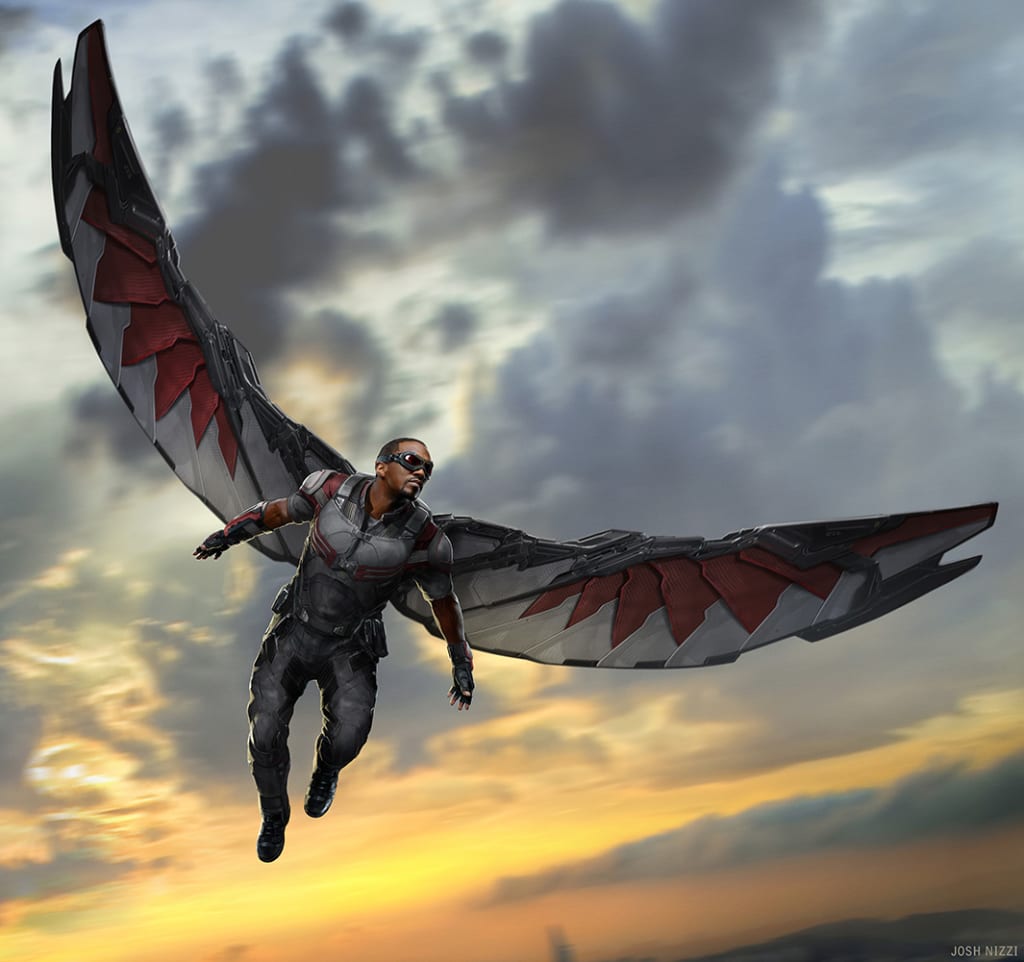
Launched in 2008, the Marvel Cinematic Universe is best known for its tremendous range of blockbuster movies. Since 2013, though, it's comprised a lot more; we've seen Marvel Entertainment gradually expand the MCU into the realm of popular television series, with the flagship Agents of S.H.I.E.L.D. and the tremendously popular Marvel Netflix range. While Marvel's TV shows often contain nods to the films, many fans have become frustrated at the fact the crossovers only seem to work one way; fans eagerly long for the Defenders to appear in Avengers: Infinity War, for example, or for Agent Coulson to return to the big screen.
When asked about the idea at Wizard World Cleveland, Anthony Mackie - best known for playing the role of Falcon - gave a blunt response:
“Different universes, different worlds, different companies, different designs. Kevin Feige is very specific about how he wants the Marvel Universe to be seen in the film world. It wouldn’t work. It wouldn’t work at all.”
First, let me point out that Anthony Mackie's statement is an important one. Over the last year or so, Mackie has proved to be one of the most important and reliable sources of information over at Marvel; many of his comments about #InfinityWar in particular have proved to be accurate. He seems to be very good at keeping an eye on the broader #Marvel business strategy and applying what he's noticed. So this is an important statement.
Fundamentally, Mackie's argument revolves around two words: "different companies". If you're going to understand why Marvel TV and Marvel movies won't cross over, you fundamentally have to get that they're no longer made by the same companies. Back in 2015, back office politics were doing real damage to Marvel Studios; specifically, #KevinFeige was finding himself increasingly frustrated with Marvel CEO Ike Perlmutter. It all came to a head over Captain America: Civil War, with Perlmutter even telling Feige not to use Robert Downey Jr.'s Iron Man (he viewed Downey as too expensive). Feige actually came to the point of threatening to quit, and Disney intervened.
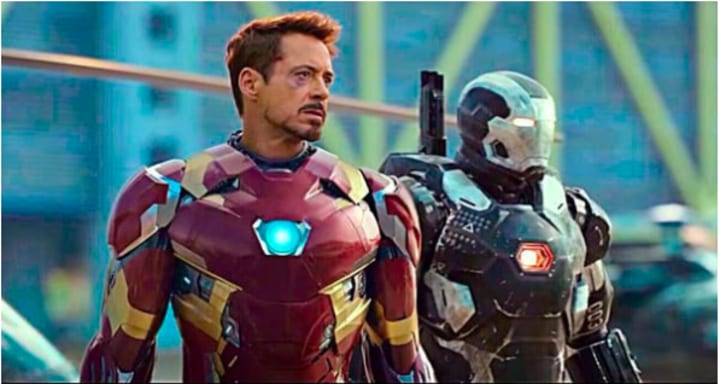
Perlmutter didn't want Downey in the film. [Credit: Marvel Studios]
The result was a massive corporate restructure, with Marvel Studios pulled out from under the rest of Marvel Entertainment, and Feige now reporting directly to Disney's CEO. Marvel Television was left under the leadership of Jeph Loeb, who still reports in to Ike Perlmutter.
At its most basic level, this is why Marvel Studios and Marvel TV shows will never cross over. Nowadays, the MCU is the product of not one but two companies, each focusing on different characters, concepts, and mediums.
Kevin Feige
Notice, though, that Mackie goes on to make a very specific statement; he points to Kevin Feige's singular vision "about how he wants the Marvel Universe to be seen in the film world". The fundamental rule of Marvel Studios is this: Kevin Feige is the man with the vision, the architect of a vast cinematic universe that's proving to be tremendously popular. Although writers and directors have a lot of room to manoeuvre - none more so than James Gunn - all are expected to ensure their ideas align with those of Kevin Feige.
That's why the MCU is developing a strong sense of tone and style, with humor and drama blending. That's why the MCU is geared towards a very specific demographic, with no sign of any interest at making the kind of R-rated superheroics we've seen with Fox's Deadpool and Logan. Kevin Feige has a sense of the MCU's brand, and he will not sacrifice that brand for anything - certainly not a cameo.
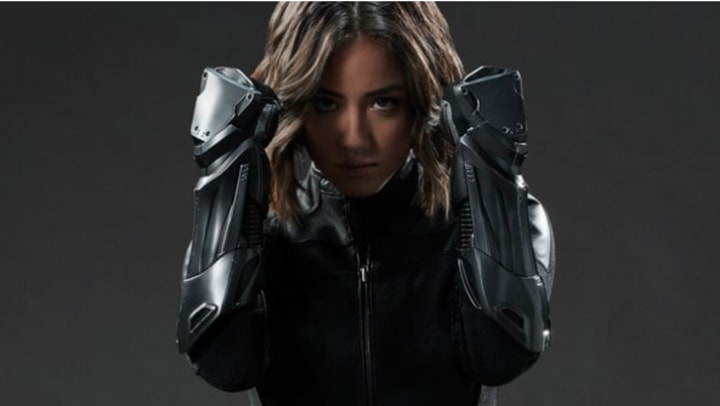
She's not gonna appear. [Credit: ABC]
Contrast Feige's position with Marvel Television. Marvel's Netflix shows are brutal, graphic, and sexual in a way that just doesn't fit with Feige's vision. Even #AgentsOfSHIELD has moved to a later timeslot with Season 4, allowing it to become darker and more violent. To be sure, we're not expecting every Marvel series to have this dynamic; it wouldn't work for #Runaways, for example! Still, the fact remains that Marvel Television is allowing each show to build its own sense of style and identity - and as a result, the series are becoming ever more unlike Marvel movies.
Don't Take This Too Far
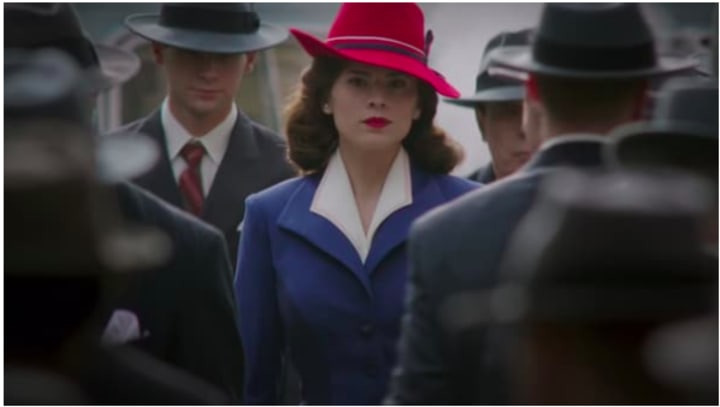
Hayley Atwell's Agent Carter. [Credit: ABC]
At the same time, I'd caution you not to take Anthony Mackie's comments too far. Yes, he describes the movies and the TV shows as "different universes" and "different worlds". But in this, he's not quite right; Marvel Studios and Marvel Television do still inhabit the same world, with the Marvel shows in particular constantly making reference to the events of the films. Here are just some of them:
- Secondary characters like Clark Gregg's Agent Coulson and Hayley Atwell's Agent Carter have made the jump from the films to starring roles in Marvel TV shows, with their backstories (including Coulson's death in The Avengers) constantly referenced.
- Marvel's Netflix shows constantly refer to 'the Incident' - the Chitauri invasion of New York in The Avengers.
- Agents of S.H.I.E.L.D. in particular has often orbited the films, most notably with Season 1's arc linking it to Captain America: The Winter Soldier. There have often been tie-in episodes to the movies, or subtle nods - such as reference to Pym Particles in Season 3, or the link between the Darkhold and the Book of Cagliostro in Season 4.
- We can expect the magic in Runaways to mirror that of Doctor Strange.
- Jaimie Alexander's Sif has made two cameos in Agents of S.H.I.E.L.D., reinforcing the links. Samuel L. Jackson's Nick Fury, Cobie Smulders's Maria Hill, and William Sadler's President Ellis have all crossed over into the TV shows too.
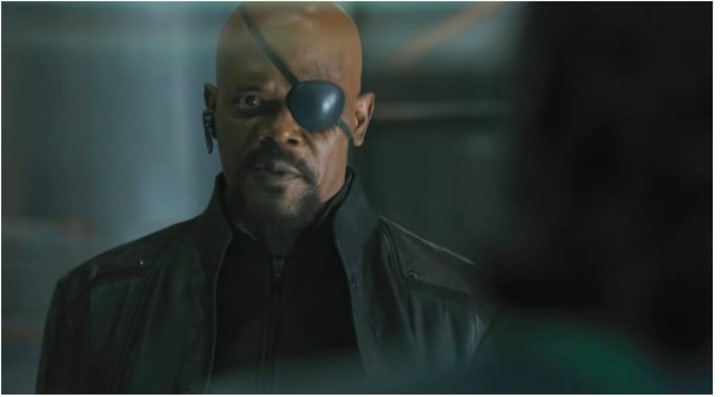
Jackson made the jump. [Credit: Marvel Studios]
Marvel Television understands the power of the MCU brand, and has gone to a great deal of effort to ensure their series piggyback on its success. For all that's the case, though, Mackie's comment reminds us that the references will only ever be one-way; while the TV shows will constantly reference the films, the movies are likely to only ever ignore what's happening on the small screen.
Why This is a Good Thing
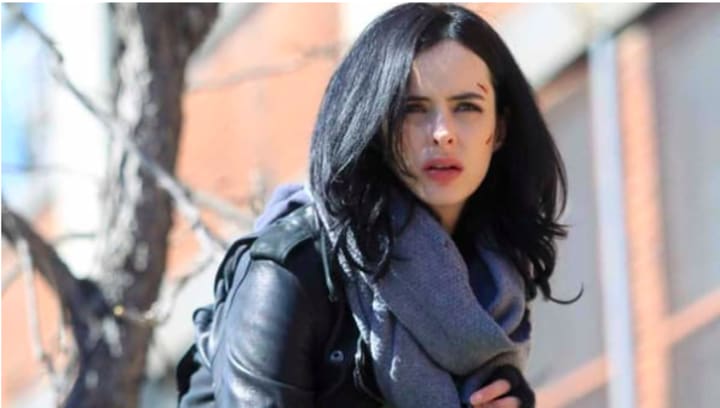
Jessica Jones. [Credit: Netflix]
I know that Marvel fans have been longing for an explicit crossover or some sort of cameo, but the sad truth is that Mackie is right. Back in 2015, Marvel Studios and Marvel Entertainment parted ways; now, they're two separate companies, with their own styles and agendas. Marvel Television has an impressive slate of shows in the works rights now, and as that slate expands, any crossover or tie-in will become ever more unlikely; thematically and stylistically, the series will develop their own tone and become something very different to Kevin Feige's vision of the MCU.
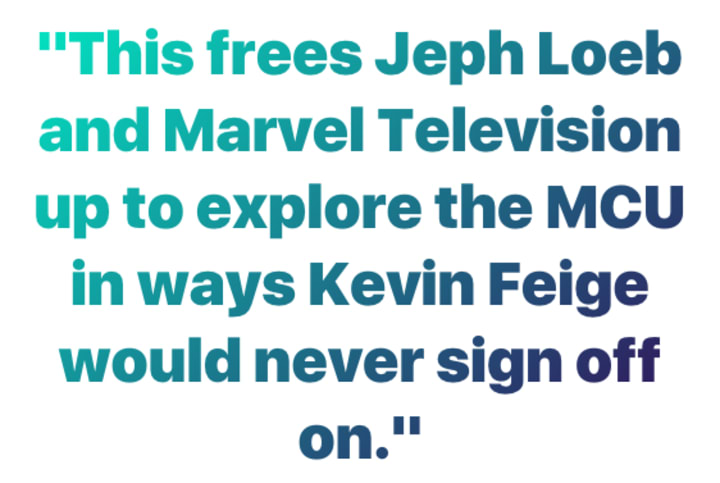
I realize that's something of a blow, but there's a silver lining to this cloud. The fact the MCU is split apart in this way is what frees Jeph Loeb and his colleagues at Marvel Television up to explore the MCU in ways Kevin Feige would never sign off on. If the two companies were still united, perhaps under Feige's leadership? Odds are we'd never have gotten to meet Jon Bernthal's Punisher, we'd never have seen Gabriel Luna's Ghost Rider, and the dark tones of sexual assault in Jessica Jones would never have been heard. Jeph Loeb and Marvel Television are giving us an MCU of a far more varied tone and style than Kevin Feige would give us - and if the cost is that there's never a crossover, that's a price I'm willing to pay.
Sorry, Marvel fans; personally, I think Anthony Mackie is right. Marvel Studios and Marvel Television are separate companies, albeit key stakeholders in the building of a shared universe. With the TV shows carving a unique identity for themselves, there's not going to be any crossovers anytime soon - but that may well be a price worth paying, for the opportunity to experience a wider universe than Kevin Feige would give us.
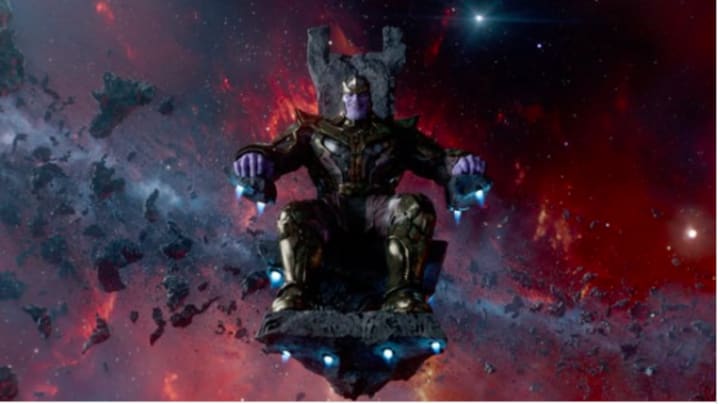
Credit: Marvel Studios
(Source: ScreenGeek)
About the Creator
Tom Bacon
A prolific writer and film fan, Tom has a deep love of the superhero genre.




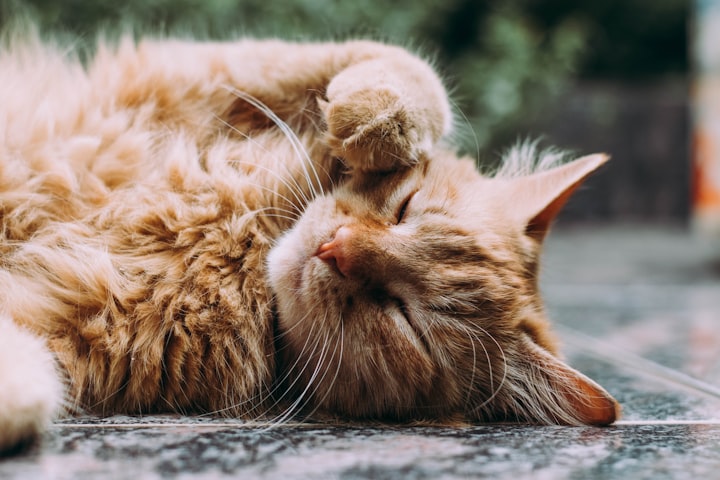

Comments
There are no comments for this story
Be the first to respond and start the conversation.